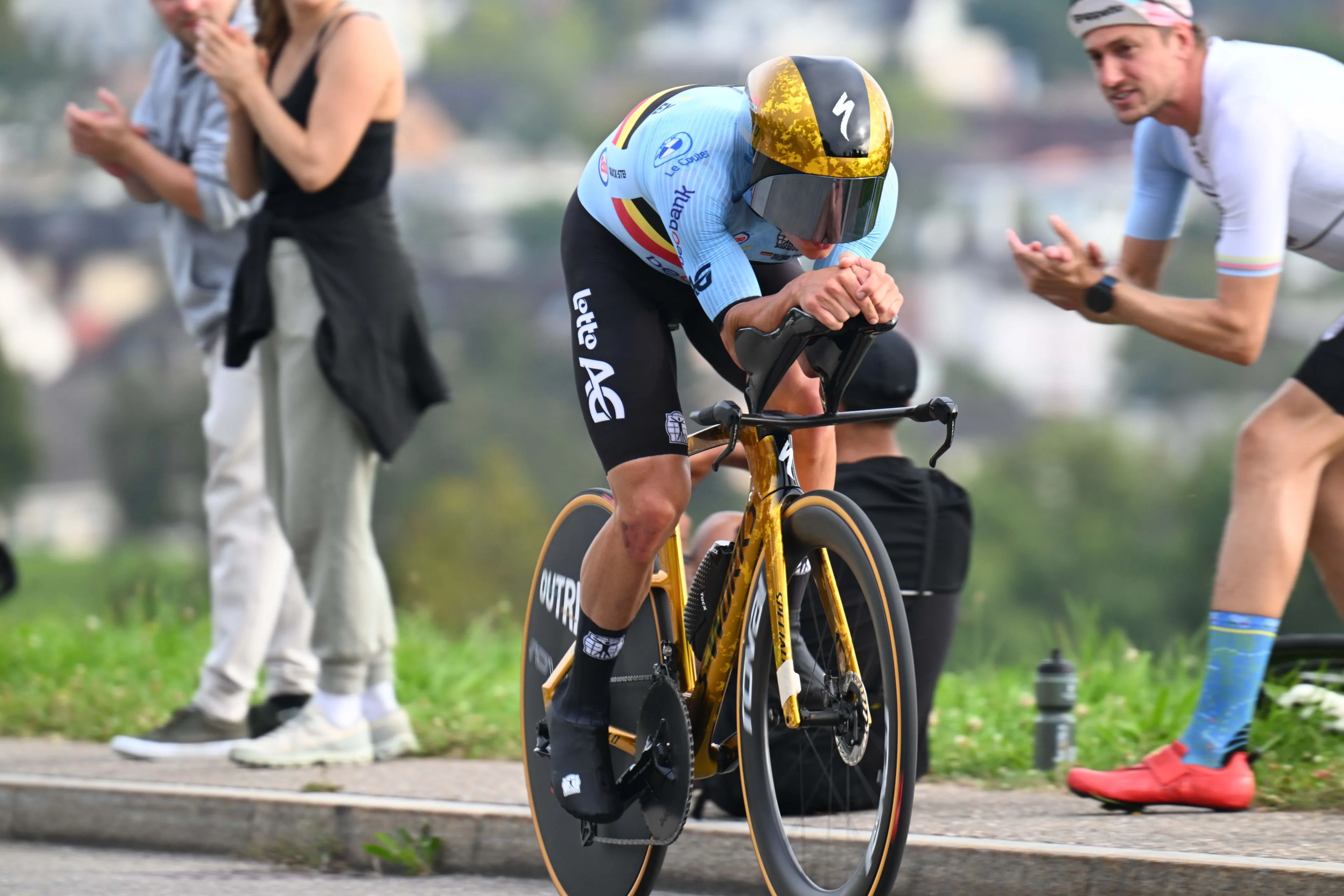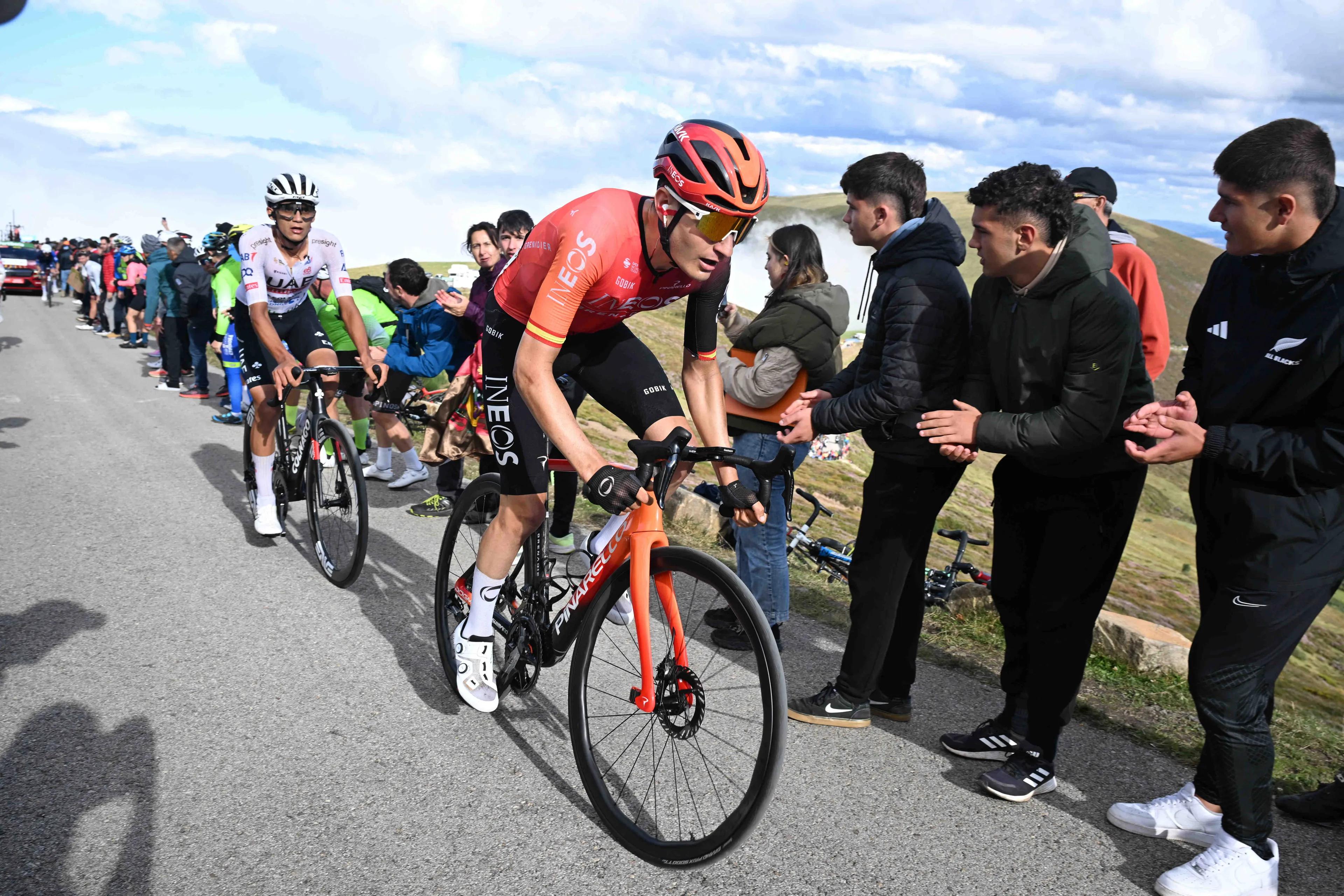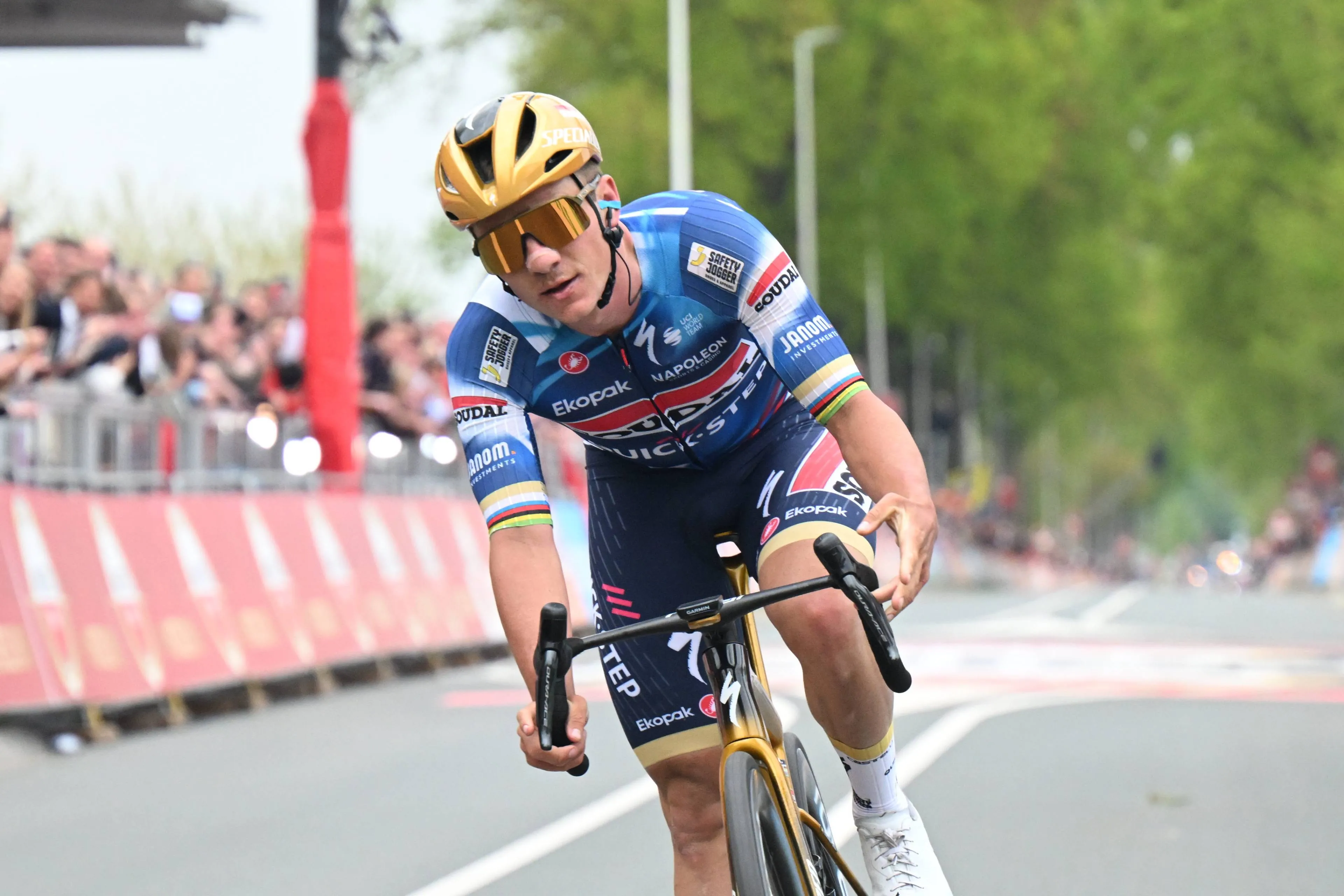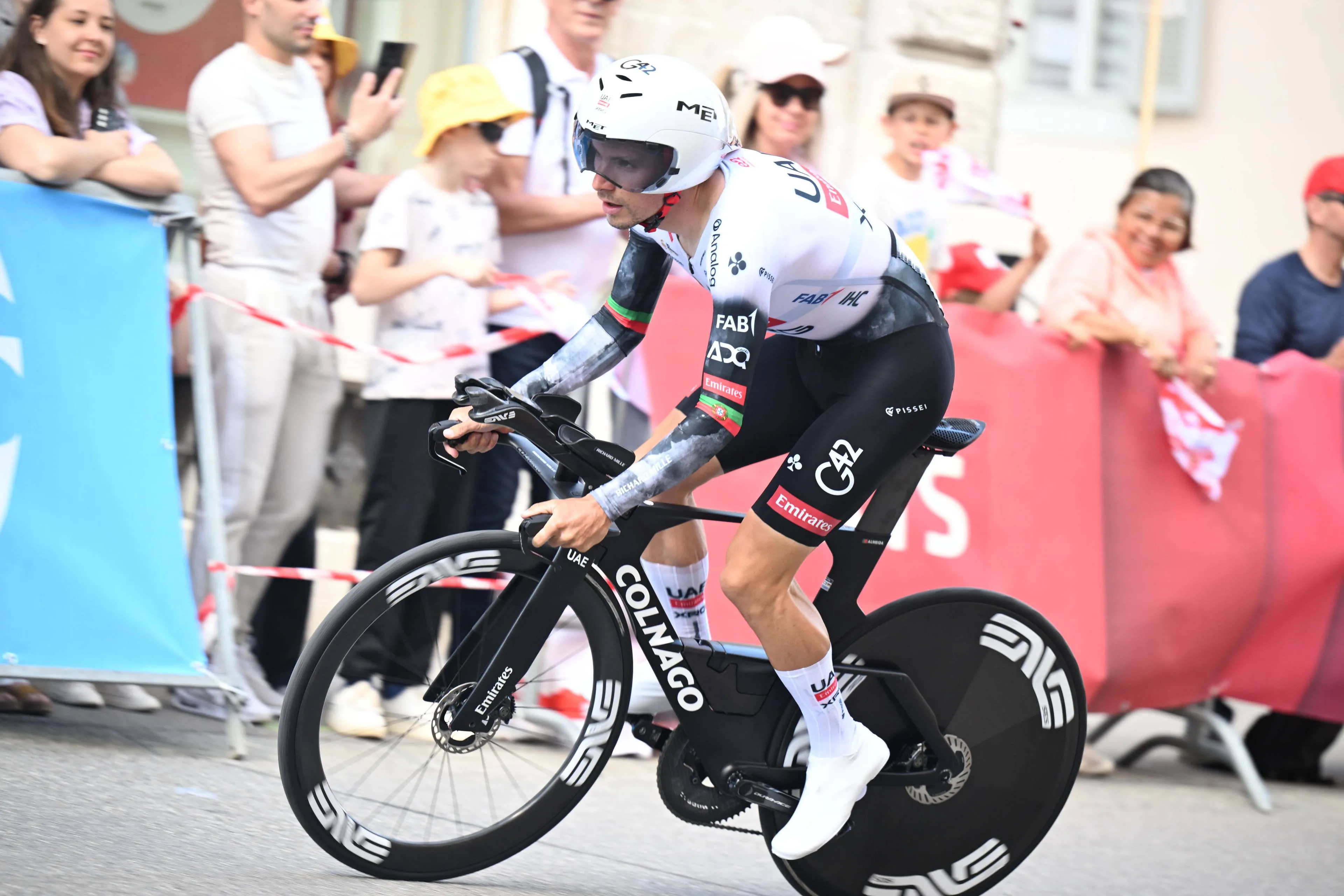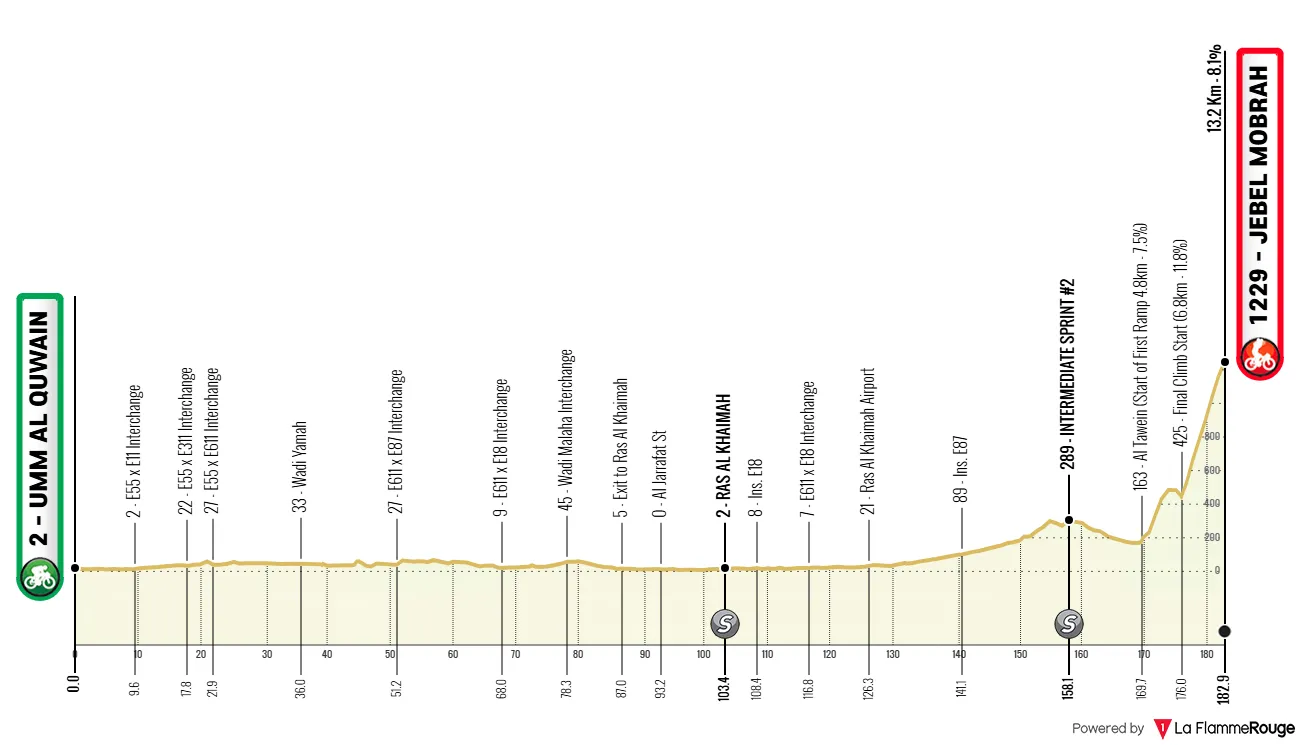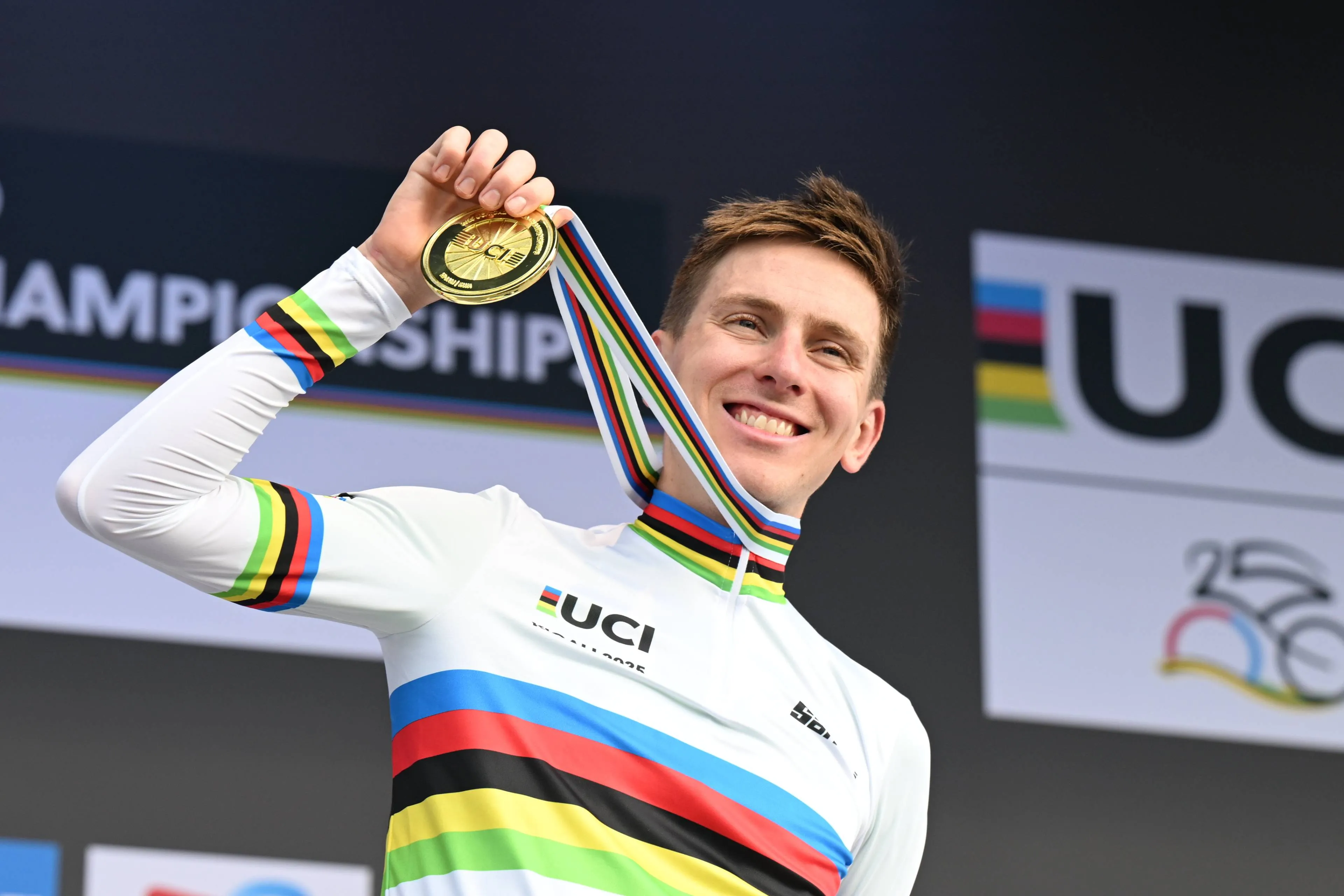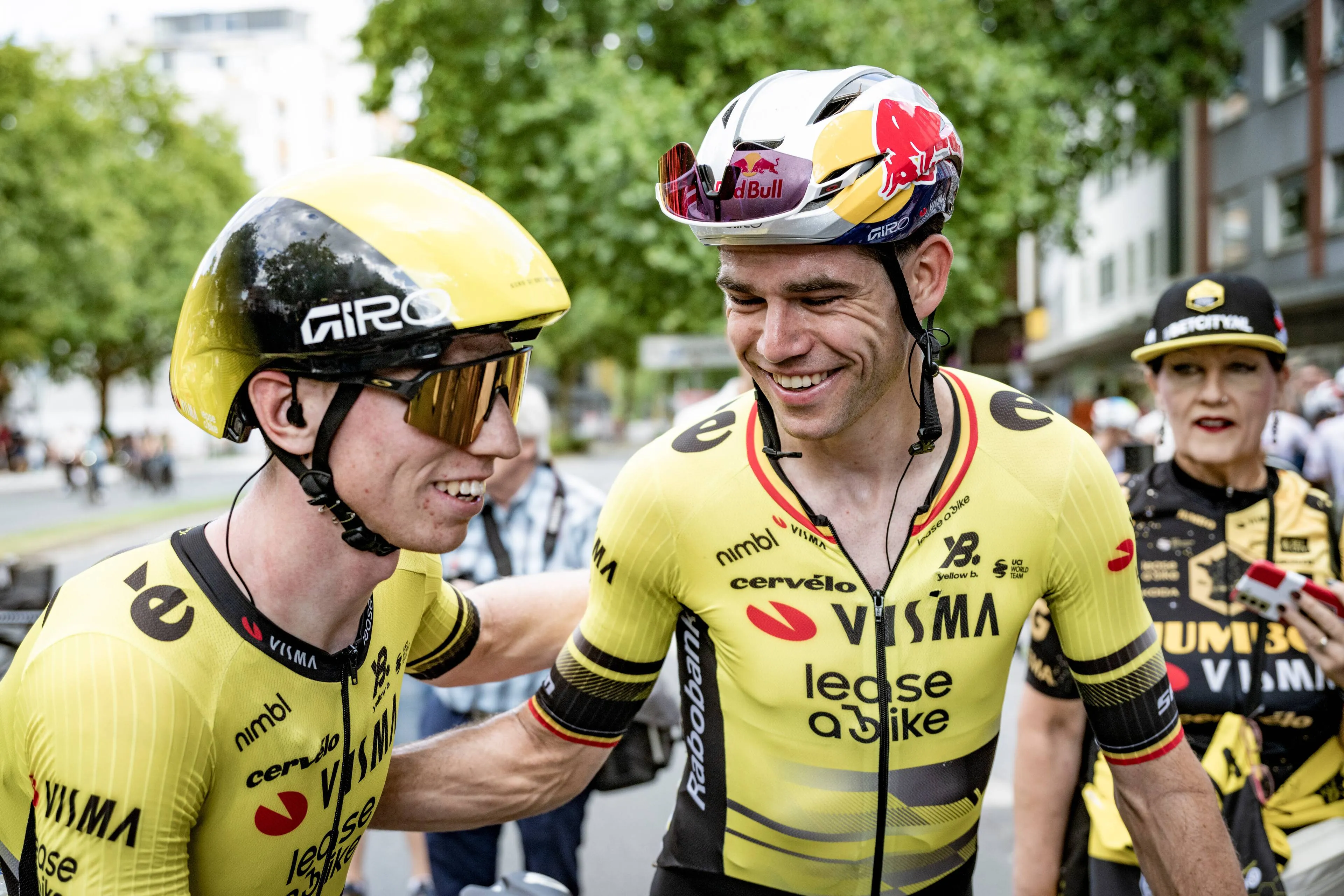
The Tour de Romandie will be the final stage-race of the spring period, and the last before the Giro d'Italia. The Swiss race every year attracts some of the best stage-racers in the world for it's climbing and time-trial tests, and this year will be no exception. We take a look at it's profiles.
As is usual, the six-day race both starts and finished with time-trials - albeit short, and not exactly pan-flat. Inbetween, the four days that remain are entirely on hilly terrain where there can be some tactical racing, and of course the penultimate stage which is a pure high mountain day with a brutal summit finish.
Read also
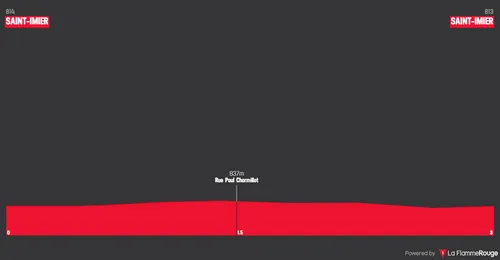
Prologue: Saint-Imier - Saint-Imier, 3.4 kilometers
The race opens up with a short and explosive prologue in Saint-Imier. It's not so usual nowadays to have such a small time-trial at World Tour level, but the Swiss race retains it's tradition and it will open up some gaps into the coming days.
With 7 tricky corners, a rather uphill start and downhill finish, this is an effort that riders can't really afford to pace - it's virtually an all-out effort from start to finish.
Read also
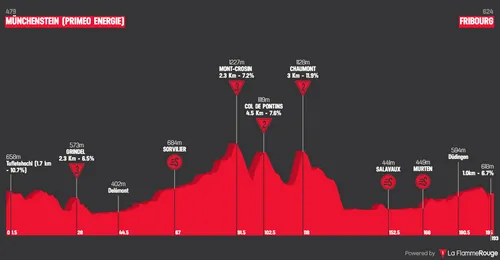
Stage 1: Münchenstein - Fribourg, 194.6 kilometers
Stage 1 is just about one of the most unusual days in the World Tour calendar this year, but it could make for very exciting racing. The stage starts with a 1.7-kilometer climb at 10%, and in it's first two thirds there are several short and steep climbs (the final one being 3 kilometers at 12%).
In this phase of the stage, which ends with 75 kilometers to go, there could potentially be some big attacks, because the terrain is favourable for it. However the distance to the finish does pose a big question on who will dare.
The final kilometers will then be rolling, with a few small climbs, two intermediate sprints, and lastly a 9% uphill rise to the final kilometer in Fribourg - an explosive and difficult finale to control.
Read also

Stage 2: Bevaix - Saint-Aubin-Sauges, 156.9 kilometers
Stage 2 is another very hard day in it's start with two quite steep climbs, these ones longer however and better suited to the climbers. They will be 7 kilometers at 7.7% and then 9.8 kilometers at 5.4% (although it gets much steeper than that), both concluded with only 42 kilometers of racing.
It will be appetizing terrain for a strong breakaway to be formed. But later in the day there will be more climbs. one of them being 5.8 kilometers at 5.9% with a descent included, and the second a familiar one for the riders.
The peloton will face the ascent to Chaumont once again where the overall classification can be split to bits not too far from the flat finish in Saint-Aubin Sauges. 3.2 kilometers at 11.4%, it ends with only 48 kilometers to go this time around, and most of the way to the finish is either downhill or flat.
Read also
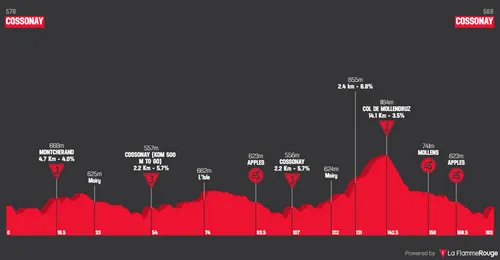
Stage 3: Cossonay - Cossonay, 183 kilometers
Stage 3 is perhaps the easiest non time-trial stage of the race, but it will still be a potential day for differences. All day long the riders go up and down, but without a meaningful ascent. An ideal day for a breakaway almost, it will be hard to organize a strong chase on such terrain.
With 40 kilometers to go will end the Col de Mollendruz which is over 14 kilometers at 3.5%, a rolling climb but one where attacks can come both in breakaway or peloton, but it can also do quite a lot of damage.
But then they climb up to the line in Cossonay which will be 2.2 kilometers at 5.7%, not a very tough climb, but one that will see a mix of the "sprinters", puncheurs and climbers come together for a likely sprint finish.
Read also
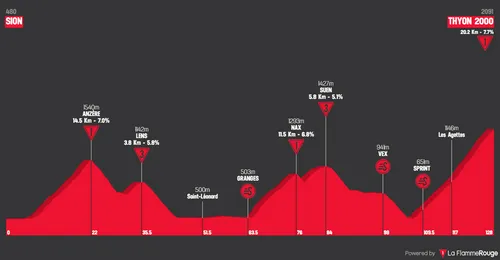
Stage 4: Sion - Thyon 2000, 128.3 kilometers
The queen stage, without a doubt. There will be 4100 meters of climbing packed in a mere 128 kilometers. It's a day in the valley and climbs around Sion where the stage starts. Right off the start 14.5 kilometers at 7%, followed by 3.8Km at 5.8%.
Then after some riding on flat roads the riders will find a second combination of climbs that will further fatigue the riders in the race: 11.5Km at 6.8% and 5.8Km at 5.1%, the last of which ending with 44 kilometers to go. There will be a downhill run-in to the final climb, which means fighting for positioning will definitely take place.
The four categorized climbs will warm things up, but without a doubt it's in the mythical ascent to Thyon 2000 (20.2 kilometers at 7%) that the stage (and race perhaps) will be decided. The climb is long, it is steep, it features altitude and it is quite consistent. There is simply nowhere to hide, and it will be one of the major climbing tests of the season.
Read also
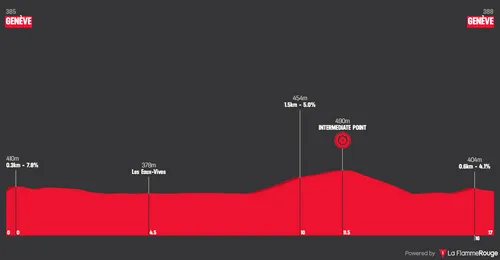
Stage 5 (ITT): Genève - Genève, 16.9 kilometers
The same way it's started, the race ends with a time-trial. This one is 16.9 kilometers in length and has true potential to make meaningful differences. However, it's certainly not a flat one, featuring a very technical and uphill start in Genève and a 3-kilometer long climb at 4% during the course. All-in-all, a difficult effort to measure, and a time-trial that can have interesting results.
Read also
CONFÉRENCE DE PRESSE LEVER DE RIDEAU : la liste des équipes et des coureurs au départ pic.twitter.com/lVdkJy3J7R
— Tour de Romandie (@TourDeRomandie) April 23, 2025
claps 1visitors 1
Just in
Popular news
Latest comments
- “I was portrayed as the devil" Bruyneel was really a talented team manager. His minor flaws: "coordinated, well-funded, and sophisticated doping regime" "hand-in-hand in implementing the team-wide doping programme" "was involved in trafficking and administering prohibited substances and methods, including EPO, blood transfusions, testosterone, human growth hormone, and cortisone. Teammates testified that nothing significant happened without Bruyneel's knowledge and approval." "fostered an environment where doping was considered a "fact of life" and necessary for success, effectively making it a condition of survival on the team. He also participated in or assisted with the cover-up of positive tests and doping violations." Those quotes show Bruyneel's true talent.Cyclingnut18-02-2026
- Fed up hearing "their" voicesslappers6618-02-2026
- When you join Ineos , learning , time , no pressure go out of the windowabstractengineer18-02-2026
- The UCI screws up againcaptmike18-02-2026
- No matter what people say - I'll watch it. And I bet all the complainers will do it too....averagecyclist18-02-2026
- Exactly what I'm thinking about it. Moreover Van Glis had a lot of time to rethink his situation but decided to stay where he was.averagecyclist18-02-2026
- Soler must be pissed at that
 leedorney18-02-2026
leedorney18-02-2026 - Completly agree, Jan was in front of van gils, following Pidcock wheel, it was Van gils who tried to force his way through Jan and the barriers. Are they blaming Jan because he belongs to the richest team that win a lot?
 maria2024202418-02-2026
maria2024202418-02-2026 - Clickbait title, not reality-based. Yawn.itsent18-02-2026
- lame, but probably correctantipodeanpedalfan18-02-2026
Loading
Write a comment

